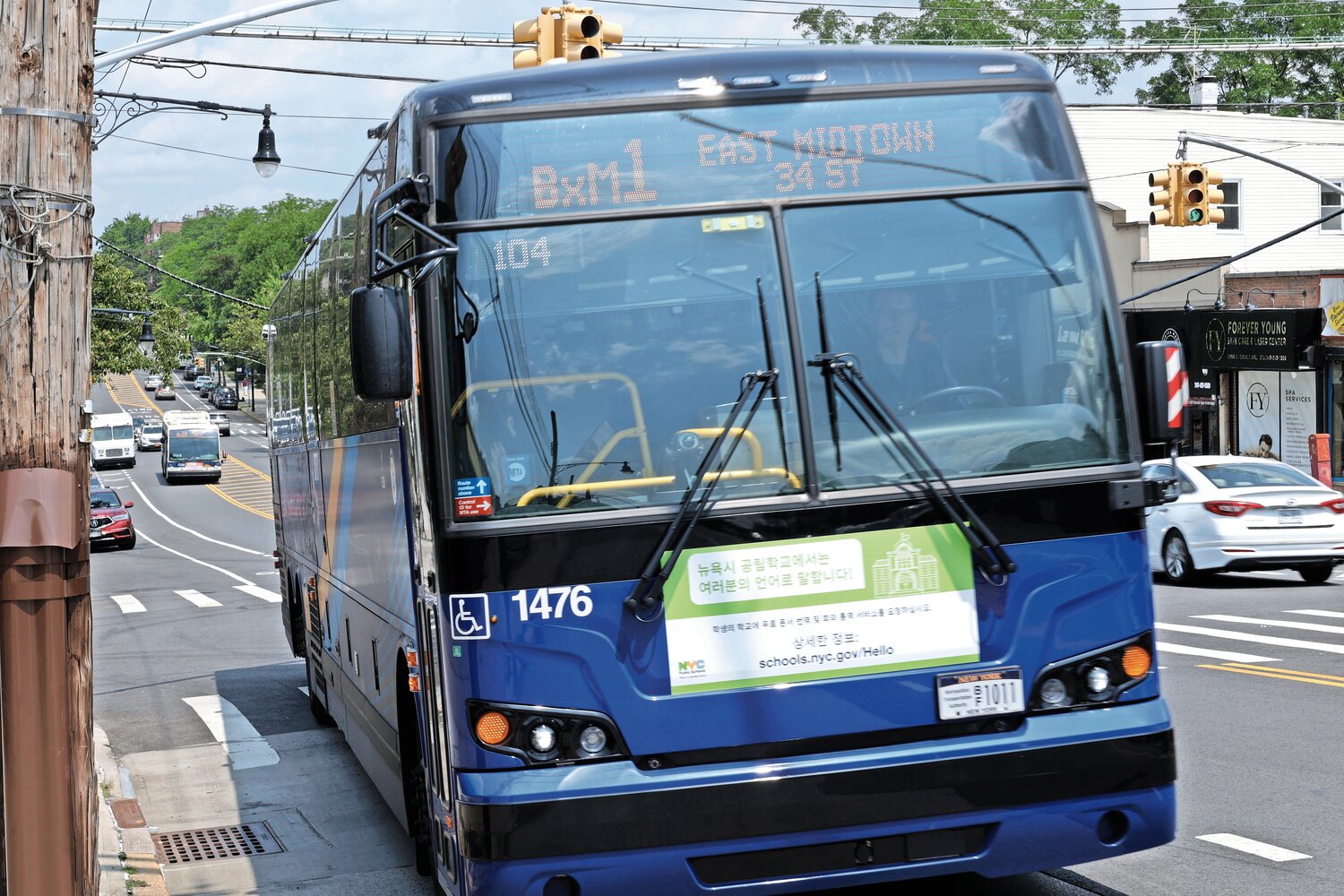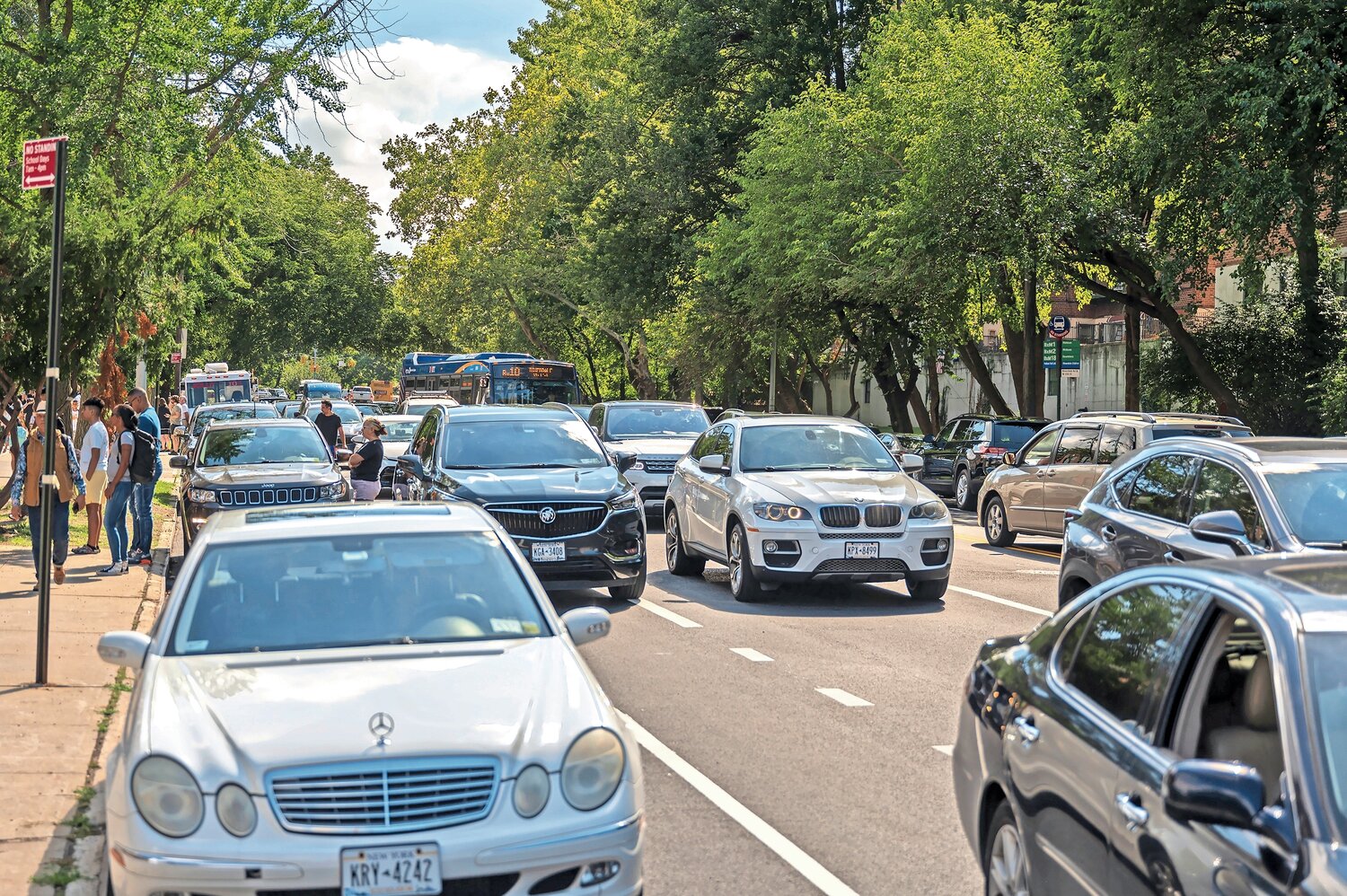NYC congestion pricing pause threatens MTA funding, sparks debate among residents
Nearly two months ago, Gov. Kathy Hochul, in her words, paused the impending congestion pricing fee, leaving the Metropolitan Transportation Authority reeling to make up for a planned $15 billion in capital program funding.
As of a meeting July 31, the MTA does not have replacement revenue added in its budget.
Riverdale resident John Semlak lived with his wife in Manhattan for nine years, leaving them both accustomed to utilizing public transportation. Despite their continued reliance on public transit, Semlak said he now owns a car and occasionally drives for things like groceries but not so much for commuting, so, he said, he finds himself in favor the congestion fee.
Semlak said he’s traveled a good bit and, globally, he’s noticed similar congestion pricing fees elsewhere.
Worldwide, places with similar fees include Singapore, London and, at home, San Diego.
Singapore and London implemented fees in the hopes of encouraging both carpooling and less highway commuters, while San Diego created a system that allowed some drivers to drive in another faster lane, for a fee.
Congestion pricing was not a new plan for the world or New York City, where it was originally introduced as far back as 2007 by then mayor Michael Bloomberg. It was included in the state budget beginning in 2019.
Semlak said he understands frustration with the rising prices and increase in bridge tolls, but public transportation fees already jumped by .66 cents in the summer of 2023.
“I think there’s a strong desire to bash public transportation,” Semlak said. “What we do is we refuse to fund it … and then we complain that we shouldn’t give money to a failing system.”
As a public transportation rider, Semlak said he’s appreciative for the “robust” system and funding it is imperative.
Riders Alliance, a city-based organization dedicated to fighting for public transportation, has been at the forefront of many protests and calls-to-action on behalf of those in favor of congestion pricing.
According to Danny Pearlstein, policy and communications director with Riders Alliance, the MTA has big challenges ahead. Pearlstein said without the revenue congestion pricing would have brought in, new pressure will be added to raise fares on transit as well as cut services.
Pearlstein said decisions for Albany lawmakers will be difficult as they try to make up for funds that would have paid for things like defense against increased flooding and “maintaining and upgrading evolutionarily a transit system that in certain parts … is close to 200 years old.”
Pearlstein said there is no future for the city in which the MTA works on capital projects and there is no congestion pricing plan. He said the congestion fee is essential because it will raise money that provides major benefits that could also get buses moving faster and reduce truck idling in some places.
“We’re going to need both congestion pricing and other sources of funds,” Pearlstein said.
As for exceptions to congestion pricing, Pearlstein said there really can’t be any, as it will create a slippery slope.
Hochul previously discussed including an exemption for yellow taxis but nothing else.
For Riverdale resident Jill Deutsch, traveling back and forth to Manhattan is typically done for medical visits. She said she’d like to see a discount for medical reasons included in the congestion pricing plan.
“On top of the bills you pay for the doctor, the parking,” Deutsch said. “It’s ridiculous to even just go to a doctor’s appointment.”
Deutsch said her family once used public transportation far more but, with her two children, it’s impractical and they purchased a car for most traveling. Deutsch’s husband is a school psychologist and he travels around the city because he finds driving to be the easiest and most reliable form of transportation.
Overall, Deutsch said, congestion pricing would push her and her family out of going into the city.
“I feel like going downtown isn’t something I’m really going to do anymore,” she said.
The current congestion-pricing exemptions listed by the MTA are low-income city residents, those with disabilities, emergency vehicles, buses and government-owned vehicles.
Low-income residents would be given a 50 percent discount that would activate after the first 10 trips in a calendar month. For low-income residents making less than $60,000, a tax credit in the amount of the tolls paid would be offered.
Individuals with disabilities or health conditions that prevent them from using public transportation could be eligible for an exemption to congestion pricing. This same exemption would be offered to organizations operating vehicles that transport individuals with disabilities. In addition, school buses, specific commuter vans and emergency vehicles would be exempt.
At the end of the July MTA fiscal planning meeting, the congestion pricing risks to the operating budget included a delay in maintaining the current buses, which will cost the agency anywhere from $50 million to $150 million.
There have been no updates from the city or the state on future planning for congestion planning.










